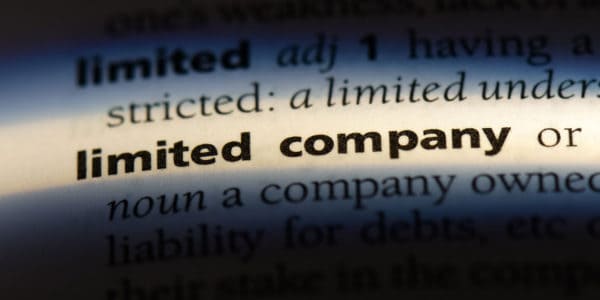Choosing the right name for your business is crucial if you want to develop a successful brand. There are also certain rules which must be followed when incorporating at Companies House. Below, we will take a look at the different aspects to consider when choosing a company name.
Key takeaways
- Choose a business name that is unique and easy to pronounce to enhance customer referrals.
- Conduct thorough market research to avoid similarities with existing company names and boost brand distinctiveness.
- Ensure your company name complies with legal regulations to prevent rejection during the registration process.
Coming up with the right name when starting a new business can have a significant effect on establishing a brand in the longer term, but it can also play an important factor in the early days when trying to draw in customers and secure investment. Consider some of the following elements for choosing a name:
- Uniqueness – names which are memorable and stand out from the crowd can help to build a customer base, as well as a stronger brand. Initially, Google was a play on the word “googol” (which is essentially a very large number), but it has now gone beyond mere branding and has become a word in its own right, e.g. to google, googled and googling.
- Simplicity – names should be easy to say and write. Whilst it’s a good idea to come up with something distinctive, avoid difficult pronunciations and awkward spellings. Consider customers who wish to recommend your business to a friend by word of mouth. They should be able to do so easily in a text or in conversation.
- Meaning and connotation – if choosing a name based on a word, check for any alternative meanings or slang. It is also worth checking if the word means something entirely different in another language. If basing the name on another name, consider any hidden meanings or connotations.
- Descriptive – it’s generally a good idea to pick a name which makes the nature of your business fairly obvious. This can also help with search engine optimisation (SEO). At the same time, if you intend on expanding into different products and services, avoid choosing a descriptive name which is too limited in its scope, as this could end up posing problems (e.g. ‘Top Shower Curtains Ltd’ if you want to also sell other bathroom paraphernalia).
- Branding – some companies may choose to focus on creating a brand which could be applied to a wide range of products and services (e.g. Virgin). In this case, describing the practical nature of business may be less important than choosing a word which is descriptive in terms of the ethos (e.g. company values or service delivery promises, etc.) or theme of the organisation.
Research the marketplace
Do some research and find out what names are being used by competitors. This is crucial in terms of avoiding any names which are too similar (and which could result in an application for company registration being rejected). It will also help to provide some ideas and inspiration, as well as making sure that you choose a distinctive name which sets your business apart.
As well as looking at your competitors, you should also search the register of companies to find out if the name you are considering has already been taken by a business in a different sector, or is very similar to another company name. This can be done easily by using our company namecheck tool on our homepage.
It can also be worth asking potential customers, or even just friends and family, for help with deciding a name, especially if you are down to just a handful of final options.
Geographical constraints
Do you want to be known as a ‘local’ business or not? Many companies will benefit from being associated with a specific town, city or other location. Reflecting this element of localism in their choice of name (e.g. ‘Bristol Gardening Experts Limited’) may help to attract local customers. Furthermore, including the geographical location can help with SEO (see below).
But there is also a downside to emphasising the local credentials of a business. Namely, if you decide to expand to other locations, having a geographical element in the company name can be detrimental. And location is often irrelevant for many companies which can conduct their business online or remotely, and whose customer base is national or even international.
Search Engine Optimisation (SEO)
As discussed above, choosing an appropriate company name can help to drive traffic to your website, resulting in click-throughs, conversions and ultimately new customers.
Search engine optimisation will generally involve keywords and phrases – which often include descriptive words about the product or service and sometimes location (e.g. ‘employment law solicitors in York’). Bearing this in mind when choosing a company name can be helpful for SEO, especially when combined with the domain name (see below).
Domain names
We have already discussed the importance of searching the register of companies to find out if the name you are considering has already been registered with Companies House by another business.
Equally as important is checking to see if a relevant domain name is available which can be used with your chosen company name. This can be checked using the various domain name registration websites. There is no point spending a lot of time coming up with a unique name, registering it with Companies House, only to find out that another company owns the domain name.
The most desirable domain names for international businesses end in ‘.com’, but ‘.co.uk’ is perfect for UK based companies. Often a name will be taken with one suffix but is available with another; in this case, do some research to find out which company is using the name which is not available.
Please note: Quality Company Formations offer free .com and .co.uk domain names with their company formation packages.
Trade marks
Some companies will register a trade mark as part of their branding efforts. Although not limited to names, a trade mark can serve to protect the brand name of a product or service.
It may be worth conducting some basic trade mark searches to find out if a company name could potentially infringe a registered trade mark.
Trade marks are a complex area of law and it is recommended that you seek specialist legal advice for more information if this is a concern.
Rules for choosing a company name
When it comes to registering a company, you need to follow certain rules when choosing a company name. Failure to adhere to these rules can lead to the rejection of your company formation application The main rules are as follows:
Identical and similar names
An application for incorporation will be automatically rejected if the company name is identical to an existing company name on the register. But even if the name is not identical, it will still be rejected if it is too similar to another company name (e.g. if the only difference is due to certain punctuation or special characters, etc.).
Problem words
Company names should not cause offence (e.g. it should not contain swear words or discriminatory connotations, etc.).
Words that are considered ‘sensitive’ will require supporting evidence if they are to be included in a company name. The full list of sensitive words is maintained by Companies House. The Secretary of State must approve the use of any sensitive words in a company name. This rule is designed to ensure that a certain name does not mislead or harm the public, for example if it:
- suggests business pre-eminence, a particular status, or a specific function, e.g. names that include ‘British’, ‘Institute’ or ‘Tribunal’.
- implies a connection with the UK government, a devolved administration or a local or specified public authority.
- includes a word that represents a regulated activity.
- includes a word whose use could be an offence.
To use a sensitive word in a company name, information must be provided with the incorporation application which supports the proposed name, e.g. a letter or email of non-objection from a specified body. Reasons that an application may fail on grounds of sensitive names include:
- Not supplying a letter of non-objection or supporting evidence, etc.
- The sensitive word is concealed within a name (e.g. Kingsbury Limited or Wholesalenurse Ltd – where ‘king’ and ‘nurse’ are on the list) and supporting evidence/letter of non-objection has not been included in the application.
- Letter of non-objection for use of the sensitive word use is not accurate, e.g. the non-objection evidence pertains to a (even slightly) different name, or it has been obtained from the wrong government department or body.
- Where applicable, the company’s articles of association have not been changed to reflect the sensitive name requirements (e.g. to use the word ‘association’ the company should have a ‘one member one-vote’ clause and a non-profit distribution clause, etc,).
- A word used in the name is offensive (e.g it’s racist or discriminatory) or implies a criminal connection.
Use of ‘Limited’
Another important rule around naming companies is that limited private company names should generally end in either ‘Limited’ or ‘Ltd’ (the Welsh equivalents ‘Cyfyngedig’ and ‘Cyf’ can be used instead for companies registered in Wales). It is possible to claim an exemption to this rule if a company is a registered charity or limited by guarantee and its articles of association meet the requirements for ‘limited’ name exemption.














Join The Discussion